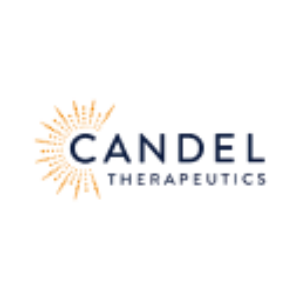Candel Therapeutics Announces CAN-2409 Achieved Primary Endpoint in Phase 3 Prostate Cancer Trial, Showing Significantly Improved Disease-Free Survival
Rhea-AI Summary
Candel Therapeutics (CADL) announced positive Phase 3 clinical trial results for CAN-2409 viral immunotherapy in localized prostate cancer patients. The trial met its primary endpoint, demonstrating statistically significant improvement in disease-free survival when combined with radiation therapy. Key results include:
- 14.5% relative improvement in disease-free survival at 54 months
- Highly significant effect on prostate cancer-free survival (p=0.0046)
- 80.4% pathological complete responses vs 63.6% in control group
- Safety profile consistent with previous studies
The trial enrolled 745 patients and was conducted under FDA Special Protocol Assessment. The addressable market for CAN-2409 in localized prostate cancer is estimated at over $10 billion in the U.S. alone. The company plans to initiate FDA discussions regarding regulatory approval.
Positive
- Met primary endpoint with statistically significant improvement in disease-free survival
- 14.5% relative improvement in DFS at 54 months compared to control arm
- 80.4% pathological complete responses vs 63.6% in control arm (p=0.0015)
- Significant increase in PSA nadir achievement (67.1% vs 58.6%, p<0.0164)
- $10 billion+ addressable market potential in U.S.
- FDA Special Protocol Assessment (SPA) agreement in place
Negative
- Phase 2 trial of monotherapy CAN-2409 failed to reach statistical significance
- Median follow-up time of 50.3 months may require longer-term data for full efficacy assessment
News Market Reaction 1 Alert
On the day this news was published, CADL gained 68.11%, reflecting a significant positive market reaction.
Data tracked by StockTitan Argus on the day of publication.
- Positive topline data for CAN-2409 viral immunotherapy achieved primary endpoint by demonstrating statistically significant and clinically meaningful benefit when combined with radiation therapy for intermediate-to-high risk, localized prostate cancer
- The safety profile of CAN-2409 was generally consistent with previous studies, with no new safety signals identified
- The phase 3 clinical trial was conducted under a Special Protocol Assessment (SPA) with the FDA
NEEDHAM, Mass., Dec. 11, 2024 (GLOBE NEWSWIRE) -- Candel Therapeutics, Inc. (Candel or the Company) (Nasdaq: CADL), a clinical-stage biopharmaceutical company focused on developing multimodal biological immunotherapies to help patients fight cancer, today announced results from a multicenter phase 3 clinical trial evaluating CAN-2409 viral immunotherapy in localized prostate cancer patients.
In the United States alone, over 100,000 men are diagnosed with localized prostate cancer every year, and over 50,000 men currently receive radiotherapy. Prostate cancer continues to be the second leading cause of cancer death among men in the United States and there has not been any new treatment or significant change in the standard of care of localized, non-metastatic prostate cancer for over 20 years. The localized prostate cancer addressable market for CAN-2409 is potentially worth over
The phase 3 clinical trial of CAN-2409 in intermediate-to-high-risk, localized prostate cancer met its primary endpoint, by demonstrating statistically significant improvement in disease-free survival in patients who received CAN-2409 plus prodrug (valacyclovir) combined with standard of care compared to standard of care alone.
The 2:1 randomized, double-blind, placebo-controlled, multicenter clinical trial enrolled 745 patients (intent to treat population, ITT) to evaluate the effectiveness and safety of CAN-2409 plus prodrug (valacyclovir) viral immunotherapy in combination with standard of care external beam radiation therapy to improve disease-free survival (DFS) in patients with intermediate-to-high risk, localized prostate cancer. Patients were randomized and stratified for the use of short-term (< 6 months) androgen deprivation therapy (ADT).
CAN-2409 is an investigational, off-the-shelf, replication-defective adenovirus that delivers the herpes simplex virus thymidine kinase (HSV-tk) gene to tumor cells. CAN-2409, when administered with valacyclovir, is designed to induce immunogenic cell death of tumor cells with exposure of tumor antigens in the context of an activated tumor microenvironment. Together, this regimen is designed to induce an individualized and specific CD8+ T cell-mediated response against the tumor, based on in situ vaccination against a variety of tumor antigens. Preclinical and clinical evidence suggests that CAN-2409 can be synergistic with local radiotherapy, providing further support for the design of the current phase 3 clinical trial.
“The improvement observed in disease-free survival in this phase 3 clinical trial is clinically meaningful. We have not seen significant advances in this indication in decades. CAN-2409 has demonstrated the potential to significantly improve long-term outcomes without adding substantial toxicity to standard of care radiation,” said Glen Gejerman, M.D., MBA, Co-Director of Urologic Oncology at Hackensack Meridian Health, and one of the principal investigators of the study. “If approved, this approach has the potential to transform the treatment paradigm in prostate cancer, offering patients with localized disease an effective treatment option that may reduce the risk of disease recurrence.”
Phase 3 Trial Results in Intermediate-High Risk Disease
The study met its primary endpoint, demonstrating a statistically significant improvement in disease-free survival compared to the control arm.
Key topline results include:
- Statistically significant improvement in DFS for CAN-2409 plus radiation therapy (n=496) vs. radiation therapy alone (n=249) (p=0.0155; HR 0.7) in the intent to treat population
14.5% relative improvement in DFS observed at 54 months for the CAN-2409 treatment arm compared to the placebo control arm- DFS improvement was observed both in patients receiving short term ADT and in patients not receiving ADT
- In an analysis that focused on prostate-specific outcomes (e.g., censored mortality due to other causes), CAN-2409 showed a highly significant effect (p=0.0046; HR 0.6) on prostate cancer-free survival
- Significant increase in the proportion of patients achieving a prostate-specific antigen (PSA) nadir (<0.2 ng/ml) was observed in the treatment arm compared to the placebo control arm (
67.1% vs.58.6% , respectively; p<0.0164) - CAN-2409 induced
80.4% pathological complete responses (pCRs) in the 2-year post-treatment biopsies compared to63.6% observed in the control arm (p=0.0015)
The median follow-up time for the recruited population was 50.3 months. The primary outcome measure included the evaluation of post-treatment biopsies, performed at two years from the end of radiation, for the presence of tumor recurrence. Local or systemic recurrence and death from any cause were also part of the DFS endpoint.
The safety profile of CAN-2409 was generally consistent with previous studies, with no new safety signals identified. The most common CAN-2409-related adverse events were flu-like symptoms, fever and chills, which were generally mild to moderate in severity and self-limited.
The company also reported today that the phase 2 clinical trial of monotherapy CAN-2409 in 190 patients with low-to-intermediate risk localized prostate cancer undergoing active surveillance showed numerical improvement in time to radical treatment and the percentage of patients achieving negative (prostate cancer-free) biopsies at 1-year post-treatment. However, these differences did not reach statistical significance. The safety profile of CAN-2409 was generally consistent with that reported in the phase 3 clinical trial.
“We are thrilled to report the phase 3 results for CAN-2409 in intermediate-to-high risk, localized prostate cancer,” said Paul Peter Tak, M.D., Ph.D., FMedSci, President and Chief Executive Officer of Candel. “This study validates previous observations of CAN-2409 activity seen in difficult-to-treat solid tumors, often resistant to immunotherapy, and confirms our previous observation of synergies with radiation therapy in models of prostate cancer. Importantly, this study was conducted under a Special Protocol Assessment (SPA) agreed with the U.S. Food and Drug Administration (FDA), on key aspects of study design, meaning that safety and efficacy data generated from the study could be sufficient for the Company to seek regulatory approval for CAN-2409 in this indication. We look forward to working with the FDA, as a next step, to seek approval to bring CAN-2409 to patients in the U.S., and advance our broad viral immunotherapy pipeline across other large oncology indications of high unmet need.”
Based on these results, Candel intends to initiate discussions with the FDA regarding the regulatory pathway for CAN-2409 in intermediate-to-high-risk localized prostate cancer. The Company will present the totality of the data for both studies at upcoming medical conferences.
Conference Call and Webcast
Candel will host a webcast and conference call today at 8:30 a.m. EST. The webcast can be accessed (Here) and on the Candel website at www.candeltx.com under News & Events in the IR section of the website. An archived webcast will be available on Candel’s website for 30 days following the presentation. Participants may register for the conference call (Here) to receive the dial-in numbers and unique PIN to access the call seamlessly. It is recommended that you join 10 minutes prior to start of the event (although you may register and dial in at any time during the call).
About CAN-2409
CAN-2409, Candel’s most advanced multimodal biological immunotherapy candidate, is an investigational, off-the-shelf, replication-defective adenovirus designed to deliver the herpes simplex virus thymidine kinase (HSV-tk) gene to a patient’s specific tumor and induce an individualized, systemic immune response against the tumor. HSV-tk is an enzyme that locally converts orally administered valacyclovir into a toxic metabolite that kills nearby cancer cells. Together, this regimen is designed to induce an individualized and specific CD8+ T cell-mediated response against the injected tumor and uninjected distant metastases for broad anti-tumor activity, based on in situ vaccination against a variety of tumor antigens. Because of its versatility, CAN-2409 has the potential to treat a broad range of solid tumors. Encouraging monotherapy activity as well as combination activity with standard of care radiotherapy, surgery, chemotherapy, and immune checkpoint inhibitors have previously been shown in several preclinical and clinical settings. More than 1,000 patients have been dosed with CAN-2409 with a favorable tolerability profile to date, supporting the potential for combination with other therapeutic strategies without inordinate concern of overlapping adverse events.
Currently, Candel is evaluating CAN-2409 in non-small cell lung cancer (NSCLC), borderline resectable pancreatic ductal adenocarcinoma (PDAC), and localized, non-metastatic prostate cancer in ongoing clinical trials. CAN-2409 plus prodrug (valacyclovir) has been granted Fast Track Designation by the U.S. Food and Drug Administration (FDA) for the treatment of PDAC, stage III/IV NSCLC in patients who are resistant to first line PD-(L)1 inhibitor therapy and who do not have activating molecular driver mutations or have progressed on directed molecular therapy, and localized primary prostate cancer. Candel’s pivotal phase 3 clinical trial in prostate cancer has been conducted under a Special Protocol Assessment agreed with the FDA. The FDA has also granted Orphan Drug Designation to CAN-2409 for the treatment of PDAC.
About Candel Therapeutics
Candel is a clinical stage biopharmaceutical company focused on developing off-the-shelf multimodal biological immunotherapies that elicit an individualized, systemic anti-tumor immune response to help patients fight cancer. Candel has established two clinical stage multimodal biological immunotherapy platforms based on novel, genetically modified adenovirus and herpes simplex virus (HSV) gene constructs, respectively. CAN-2409 is the lead product candidate from the adenovirus platform and is currently in ongoing clinical trials in NSCLC (phase 2) and borderline resectable PDAC (phase 2), and recently completed phase 2b and phase 3 clinical trials in localized, non-metastatic prostate cancer. CAN-3110 is the lead product candidate from the HSV platform and is currently in an ongoing phase 1b clinical trial in recurrent high-grade glioma (rHGG). Finally, Candel’s enLIGHTEN™ Discovery Platform is a systematic, iterative HSV-based discovery platform leveraging human biology and advanced analytics to create new viral immunotherapies for solid tumors.
For more information about Candel, visit: www.candeltx.com
Forward-Looking Statements
This press release includes certain disclosures that contain “forward-looking statements,” within the meaning of the Private Securities Litigation Reform Act of 1995, as amended, including, without limitation, express or implied statements regarding the expectations regarding the therapeutic benefit of the Company’s programs, including the ability of CAN-2409 to improve disease-free survival of patients with intermediate-to-high risk, localized prostate cancer; expectations regarding communications with the FDA and the impact of the phase 3 prostate cancer trial being conducted under an SPA with the FDA. The words “may,” “will,” “could,” “would,” “should,” “expect,” “plan,” “anticipate,” “intend,” “believe,” “estimate,” “predict,” “project,” “potential,” “continue,” “target” and similar expressions are intended to identify forward-looking statements, although not all forward-looking statements contain these identifying words. Any forward-looking statements in this press release are based on management’s current expectations and beliefs and are subject to a number of risks, uncertainties and important factors that may cause actual events or results to differ materially from those expressed or implied by any forward-looking statements contained in this press release, including, without limitation, those risks and uncertainties related to the timing and advancement of development programs; the Company’s ability to continue as a going concern; expectations regarding the therapeutic benefit of the Company’s programs; that final data from the Company’s pre-clinical studies and completed clinical trials may differ materially from reported interim data from ongoing studies and trials; the Company’s ability to efficiently discover and develop product candidates; the Company’s ability to obtain and maintain regulatory approval of product candidates; the Company’s ability to maintain its intellectual property; the implementation of the Company’s business model, including strategic plans for the Company’s business and product candidates; whether the Company will receive regulatory approval to market products; and other risks identified in the Company’s filings with the U.S. Securities and Exchange Commission (SEC) including the Company’s most recent Quarterly Report on Form 10-Q filed with the SEC and subsequent filings with the SEC. The Company cautions you not to place undue reliance on any forward-looking statements, which speak only as of the date they are made. The Company disclaims any obligation to publicly update or revise any such statements to reflect any change in expectations or in events, conditions, or circumstances on which any such statements may be based, or that may affect the likelihood that actual results will differ from those set forth in the forward-looking statements. Any forward-looking statements contained in this press release represent the Company’s views only as of the date hereof and should not be relied upon as representing its views as of any subsequent date.
Investor Contact:
Theodore Jenkins
VP, Investor Relations and Business Development
Candel Therapeutics, Inc.
tjenkins@candeltx.com
Media Contact:
Ben Shannon
Vice President
ICR Healthcare
CandelPR@icrhealthcare.com









